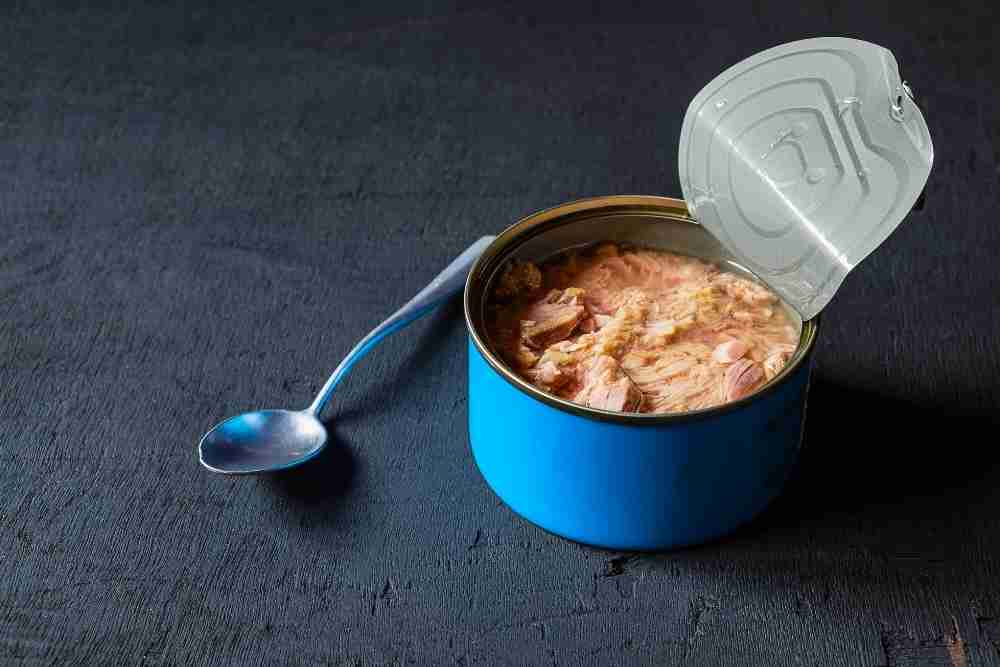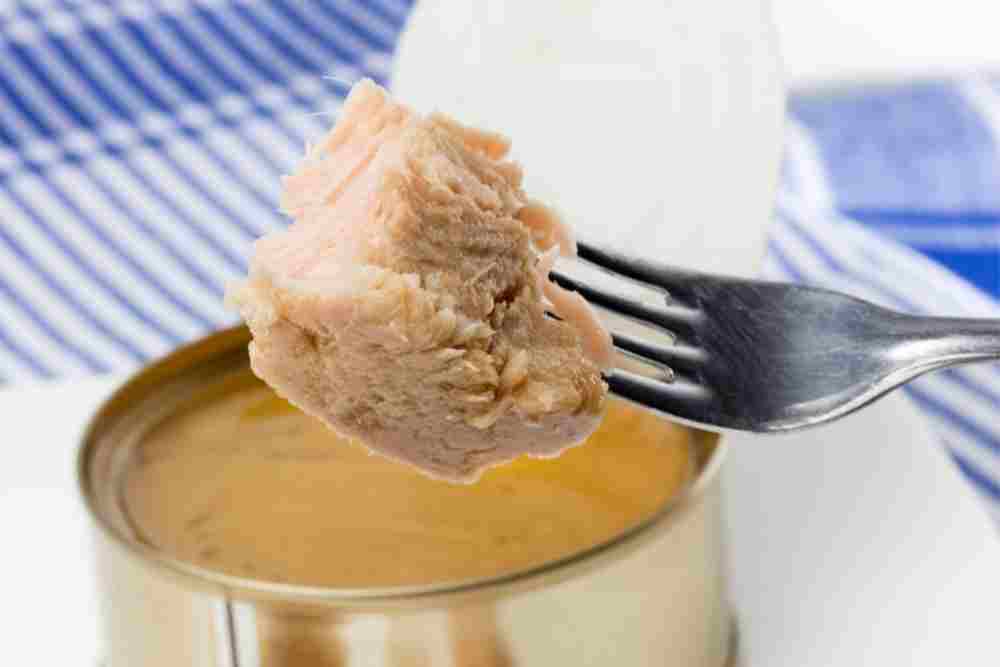Canned tuna is a popular seafood item that has been debated for years. Many people believe that canned tuna is unhealthy because it is high in mercury.
However, other people believe that canned tuna is healthy because it contains omega-3 fatty acids and protein.
So, which is it? Is canned tuna healthy for you? The answer is that it depends on how much and when you take it as a seafood dish.

Canned Tuna
Canned tuna is a type of fish that has been preserved in oil. There are many different types of canned tuna, but the most common is chunk light tuna.
Canned tuna can be healthy food, but it is important to read the ingredients to make sure it is.
Some of the health benefits of canned tuna include being an excellent source of high-quality protein and omega-3 fatty acids.
Nutritional Value of Canned Tuna
Canned tuna has a number of nutritional benefits, including protein, vitamin D, potassium and
Protein
Protein is an important nutrient for both humans and animals. In canned tuna, protein makes up around 20-30% of the total caloric content. This means that a can of tuna provides a good amount of protein.
Canned tuna is a healthy, affordable, and convenient option for protein. However, some brands contain less protein than others.
The most protein-rich can of tuna is Wild Planet’s sustainably caught Alaskan salmon variety.
Omega-3 Fatty Acids
Canned tuna is a great source of omega-3 fatty acids, which are important for keeping your heart healthy.
Omega-3 fatty acids are polyunsaturated fatty acids that are found primarily in cold-water fish like salmon and tuna.
These fatty acids are essential for human health and can help lower blood pressure, reduce inflammation, and improve heart health.
Potassium
There are many different types of tuna available in cans, but the most common is albacore. Albacore tuna contains a higher level of potassium than other types of tuna.
This is because albacore tuna swims in water that is high in potassium. A can of albacore tuna has about 270 mg of potassium.
This amount is more than most people need in a day, but it’s important to remember that not all canned goods have this much potassium.
Some brands have only 160 mg or 120 mg of potassium. So be sure to read the labels before you buy canned goods.
The Benefits of Eating Canned Tuna

Canned tuna is a healthy, affordable, and convenient food option that has many benefits. Here are just a few:
-Tuna is a good source of protein, which is essential for maintaining muscle and bone mass.
-Canned tuna is low in calories and provides the same amount of protein as leaner meats.
-It’s a good source of omega-3 fatty acids, which are important for heart health and preventing chronic diseases such as cancer.
-Canned tuna can be used in salads, sandwiches, and soups, making it an easy way to get your recommended daily intake of minerals and vitamins.
Risks of Eating Canned Tuna

Canned tuna is a convenient and affordable food source, but there are some important limitations to consider.
-The main risks associated with mercury exposure from canned tuna can be harmful to the body.
-Canned tuna is often high in sodium, which can increase your risk for hypertension and other health problems.
-This product may also contain contaminants, such as toxins from algae or bacteria.
-Canned tuna is often packed with other chemicals and additives that could potentially be harmful to your health.
-The product primarily consists of water, oil, and unspecified additives. This means that canned tuna does not provide the same nutritional value as of fresh tuna.
-Canned tuna is often processed using high-heat processing methods that can damage the fish’s texture and flavor.
FAQs
Is canned tuna healthy for pregnancy?
While it is true that canned tuna is low in mercury and other pollutants, many experts still advise pregnant women to avoid eating large amounts of this type of fish.
Sources of important omega-3 fatty acids are best obtained from natural sources such as oily fish or krill oil.
Is canned tuna healthy for toddlers?
For the most part, canned tuna is a healthy and affordable seafood option for toddlers. However, some parents are concerned about the potential health risks of contaminant levels in canned tuna.
Additionally, canned tuna contains high levels of sodium which can be harmful to toddlers’ developing bodies. Instead of canned tuna, some experts recommend alternatives like salmon or mixed fish filets.
Is canned tuna healthy to eat every day?
In fact, many pediatricians now recommend that pregnant women and children aged 1-3 eat at least two servings of seafood per week.
Is canned tuna healthy for bodybuilding?
Canned tuna is a great option for bodybuilding because it has high levels of protein and omega-3 fatty acids. These nutrients help to build muscle tissue and improve your overall health.
The high protein and low-calorie content make it an excellent choice for athletes looking to maintain or increase their muscle mass. Additionally, canned tuna contains mercury, which some athletes prefer to avoid for health reasons.
Is canned salmon or canned tuna better?
There are pros and cons to both canned salmon and canned tuna.
On the plus side, canned salmon is a healthy option because it is packed with protein and omega-3 fatty acids.
Canned tuna also provides good amounts of heart-healthy EPA and DHA. However, some people find that canned salmon can be a little bland, while others find that canned tuna can have a strong flavor.
So, which is better for you? It depends on your preferences.
Why is tuna high in mercury?
Tuna is a high-mercury fish. The American Heart Association (AHA) has warned that people who eat more than 12 ounces of tuna a week may be at an increased risk for heart disease. Tuna can contain up to three times the amount of mercury found in other types of fish.
Mercury can damage the heart and nervous system, leading to health problems like heart attacks and strokes.
Tuna is also a major source of vitamin D, which is important for bone health.
Is canned tuna good for weight loss?
Canned tuna is a popular diet food choice for many people. Additionally, canned tuna is high in calories and fat. For these reasons, experts suggest that people avoid canned tuna as regular diet food.
Is canned chicken healthier than tuna?
It’s a question that has been asked by many people, and one that has yet to have a definitive answer. The health benefits of each type of food vary depending on the person, so it’s difficult to say which is healthier.
There are some things you can take into account when making this decision. For example, canned chicken contains less saturated fat and sodium than tuna.
However, canned chicken also contains additives such as salt and sugar, which can be unhealthy in large quantities. In the end, it’s up to you to decide what is best for your own health.